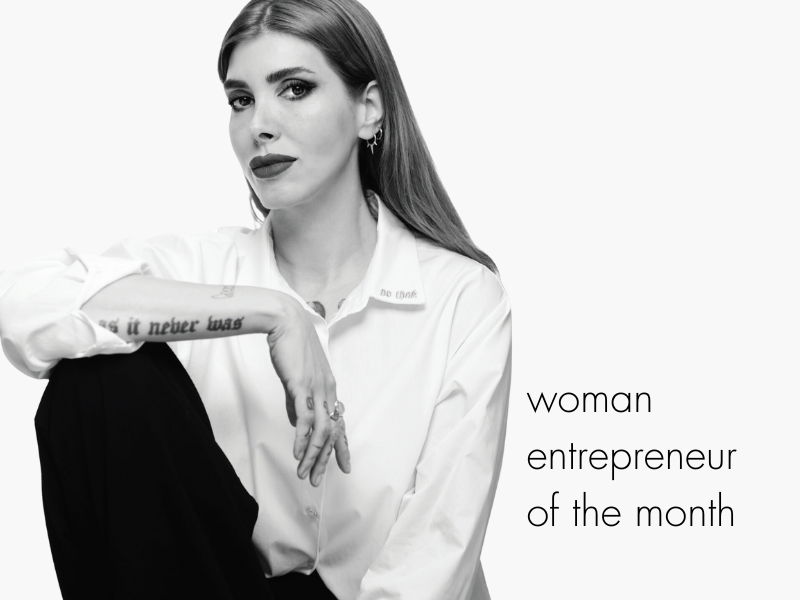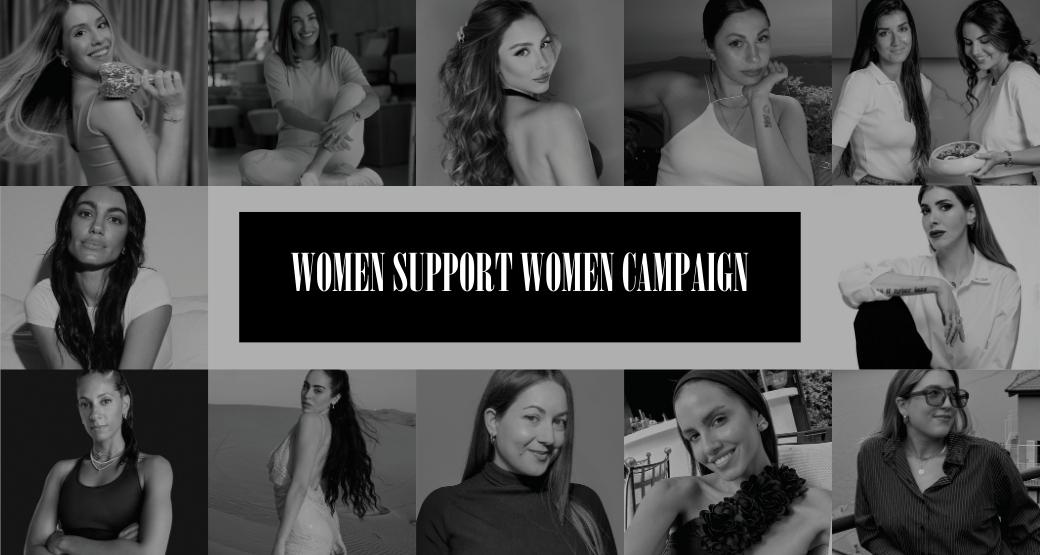WOMEN SUPPORT WOMEN CAMPAIGN - FEB - NATALIA PRINTEZI
February is the month we chose to focus on the fascinating story of Natalia Printezi and her business, Dalica. Through the "Women Support Women" campaign, we aim to highlight the stories of women who have dared to dream and conquer the world of entrepreneurship. Natalia embodies this spirit with her unique journey, turning her passion for creation into a successful business venture.

Question:
We would love to hear your personal story! What made you decide to start your own business? Was it a childhood dream or a sudden idea?
Answer:
What motivated me to start my own business was the decision to set my own terms in the professional realm. And I don't mean avoiding a loaded schedule or the exhausting daily grind - those will always exist, and I've accepted them.
I mean creating a work environment that reflects the values, ethics, and scope of creativity I want to be evident in every project. So no, it wasn't a childhood dream; it was a purely adult, mature, and conscious need that arose after many years of experience in advertising agencies.
Question:
Can you tell us a few words about your company? What are its core values?
Answer:
My business is a creative agency, a small advertising firm where we undertake the promotion of products, services, and companies. Our goal is to do this in unconventional ways so that every project we are entrusted with makes a difference in the market. My office is called Dalica, like the well-known massive vehicles, because it is as rare for a woman to lead an advertising company as it is for one to drive a truck. Our core values are that all our collaborations, whether with employees or clients, are conducted with respect, courtesy, honesty, and trust. Every achievement is the result of teamwork - including the client, because we all form the gears of success.
Question:
What challenges have you faced as a woman owning your business, and how did you overcome them? Is there a specific story you would like to share?
Answer:
The biggest challenges I faced as a woman are undoubtedly two: persistent interest from clients for something more (I put the slang term "hitting on" as politely as I can) and being underestimated by collaborators, suppliers, and clients. Regarding the first, it's absolutely healthy and normal for specific feelings to arise, but the issue is when the boundaries of "healthy" are crossed. As for the second, I specifically refer to the tendency to underestimate not only the nature but also the work itself of a woman: for example, that because I belong to the "weaker sex" I might not withstand the pressure required for a project, or that my design might not be dynamic enough. Fortunately for all of us, I have been trained to manage both calmly. Short story: I am in the office with our copywriter waiting for the client to arrive for a meeting. When he comes in, he first greets the copywriter, commenting on how beautiful the space is and how nicely he has set it up. The surprise in his eyes when I said "thank you" was evident. He thought the copywriter was the business owner.
Question:
Is there a moment in your career that made you very proud?
Answer:
The truth is that I have designed many projects of which I am proud, but I will mention the one with the No Thinkin logo - the distinctive lips biting down while the teeth with braces peek out. When it went on air and we communicated what it represents, we received so many messages from women who dared to get braces at an older age. For me, this was a success on multiple levels: it was not only commercial but also emotional as it inspired a segment of the audience to reconsider and dare.
Question:
What advice would you give to women who want to start their own business?
Answer:
I think no one is in a position to give advice, what I would suggest is to regain the dynamism they may have been deprived of. Fear and insecurity, especially in a system that tries to suppress any independent activity, will always exist.
And here is our strength: to overcome every obstacle in each one's unique way so as to become an example for all. And finally, to turn failure into a lesson - it's not a disgrace, it's just a method that didn't work, and from this, they can only learn.
Question:
Lastly, we would like to know what the phrase "women support women," which is also the title of this year's campaign, means to you?
Answer:
For me, it signifies a period of mutual support and harmony among women. We are changing the competitive stereotypes that pit us against each other and are standing by each other's side. We abandon toxicities, rivalries, enjoy and admire every woman's professional success. The advancement of one of us impacts us all. Let's be together in all of this, then.
As we conclude the narrative of Natalia Printezi and her business, Dalica, it is essential to reflect on the power we possess when we support one another. The "Women Support Women" campaign serves as a reminder that each of us can be a source of inspiration and strength for someone else. Natalia's story is not just a successful business case; it's also a lesson in solidarity, empowerment, and self-love. We hope that her story will inspire more women to pursue their dreams, embrace challenges, and create their path to success.
For more information about Natalia Printezi's business, Dalica, you can visit their website here and follow them on Instagram here.
And stay tuned for the next female entrepreneur and her story, which we will share in our series.
Together, we can construct a world where every woman can flourish.
With Love,
Z.
